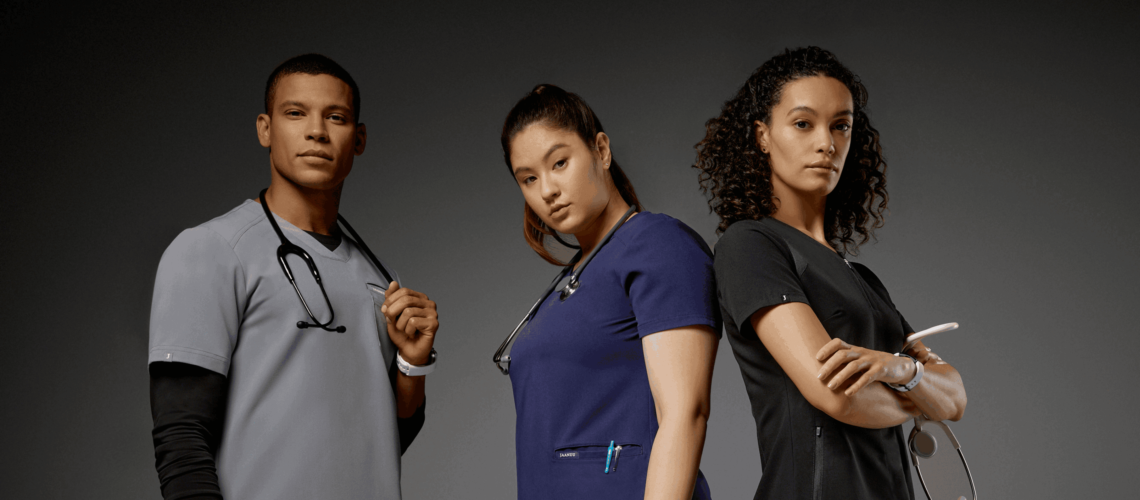If you’re a medical student, surely you’ve already asked yourself, “What type of doctor should I be?” With a seemingly endless amount of specializations, trying to figure out what types of doctors and salaries appeal to you can be daunting, to say the least.
To keep things simple, we’ve compiled a medical specialist list of the most common types of doctors to help make the decision a little easier.
Primary care doctors
These are typically the doctors you will visit most often. Think: common illnesses and routine check-ups, or if you need a referral for another issue. These types of doctors and the years of schooling they undergo make them well-suited for everyday health care. Primary care doctors do the following,
- Carry out routine health checkups.
- Conduct basic health tests like measuring your blood pressure and heart rate.
- Answer questions and offer suggestions for treatment.
- Give referrals to specialists for more complicated health problems.
- Prescribe medication.
You’ll find several different subspecialties for primary care doctors, each have their with its own area of focus.
Pediatricians

In pediatric medicine, the number-one priority is children and infants, usually from newborns to 18-year-olds. Here you’ll,
- Conduct routine health tests on children.
- Diagnose and treat childhood illnesses like ear infections or the stomach flu.
- Prevent or detect childhood diseases.
Geriatric doctors
Like pediatricians, geriatric doctors also treat a specific age range. Only this time, their medical specialty is on the exact opposite side of the age spectrum—seniors.
- Help adults with the aging process.
- Diagnose and treat common conditions that appear in older adults.
- Detect and treat diseases commonly found in seniors. Cancer frequently appears in seniors, so they’ll be on the lookout for symptoms and will make referrals to internal medicine when necessary.
Family physicians
These are the jack-of-all-trades doctors who specialize in a wide range of conditions. While they often dress casually for patient visits, you will see them wearing healthcare scrubs from time to time.
Like other primary care doctors, these physicians,
- Conduct routine health checkups related to family medicine.
- Help patients with basic illnesses and prescribe medicine.
- Keep an eye out for more severe health conditions.
- Refer patients to specialists like neurologists, radiologists, otolaryngologists or gastroenterologists.
Internist physician
These internists are known for their extensive hospital-based training and in-depth knowledge of internal organs. For example, they may specialize in cardiology, blood vessels and heart-related health.
Different specialty doctors
Primary care physicians take care of the basics (which is actually nothing basic whatsoever), but many doctors go on to become specialists. Each type has their own area of expertise. Here are some of the most common,

Allergists
You guessed it—these doctors focus on identifying and treating allergies, along with asthma, autoimmune diseases and immunodeficiencies. They’ll also help you find the triggers for those allergies and prescribe medication to keep your allergic reactions under control.
Infectious Disease Specialists
Always found dressed in hospital scrubs and bulk ordering face masks, infectious disease specialists deal with contagious health scenarios like the COVID-19 pandemic.
Experienced with severe risks, these doctors treat infectious diseases like bird flu, swine flu, influenza, bacterial infections and parasitic infections.
Dermatologists
Is there something wrong with your skin, hair or nails? If so, you’ll probably turn to a dermatologist. These doctors focus on skin cancer, acne and hair loss, to name a few. They can also perform minimally invasive procedures.
As an added benefit, some dermatologists specialize in cosmetic treatments, including Botox injections and laser hair removal.
OB/GYN
Obstetricians and gynecologists focus on female health, preventive care and treating diseases that primarily affect the reproductive organs, which can range from breast cancer treatment and prenatal advice, to childbirth assistance and menopause.
Ophthalmologists
Colloquially known as “the eye doctor,” ophthalmologists are concerned with anything and everything related to your eyes. These doctors perform examinations, diagnose eye conditions and perform surgery. Common ailments that they treat include cataracts and glaucoma.
Cardiologists
Cardiologists diagnose and treat heart diseases and cardiovascular ailments, including high blood pressure, irregular heart rhythms, congestive heart failure and heart attacks; however, they do not perform heart surgery.
Gastroenterologists
Gastroenterologists are concerned with the gut, which includes your digestive tract, stomach, pancreas and liver. They’re in charge of diagnosing symptoms, offering treatment and performing tests such as colonoscopies and endoscopies.
Endocrinologists
These specialists focus on certain hormones and how they impact the body. They treat growth problems, especially in children, and assist with diabetes, thyroid conditions and infertility issues for all genders.

Urologists
As the name suggests, urologists treat infections and complications within the urinary tract for both men and women. They can address infertility issues for men as well.
Nephrologists
The kidney is a major organ and as such, there’s a specialist dedicated to its inner workings. Nephrologists treat diabetes, kidney stones, hypertension and lupus. They will also sign you up for dialysis to treat kidney failure.
Anesthesiologists
There’s no squeaking by these specialists, as surgeries and invasive procedures would be excruciatingly painful without them. These doctors specialize in administering anesthesia to help patients’ feel as comfortable as possible during painful procedures and prescribing treatment plans for chronic pain.
Emergency room doctor
Not so much a specialist as the kind of doctor you hope never to have to meet, ER doctors focus on emergency care for patients dealing with life-threatening conditions. The stakes are high, as well as the stress.
Overall, no matter the specialty or the situation, doctors are there to help others live life to the fullest (and the healthiest!). Whether a primary care physician or a specialist, a doctor’s career opportunities are immense, and the sense of reward that comes from caring for others like few in this world can is unparalleled. Are you a med school hopeful who wants to learn what kind of training is involved? Read up on how long it takes to become a doctor.

